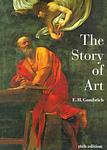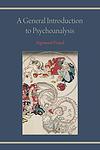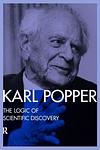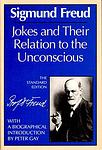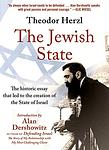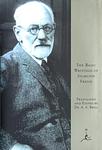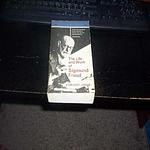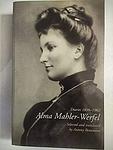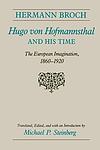The Greatest "Vienna, Nonfiction" Books of All Time
Click to learn how this list is calculated.
This list represents a comprehensive and trusted collection of the greatest books. Developed through a specialized algorithm, it brings together 300 'best of' book lists to form a definitive guide to the world's most acclaimed books. For those interested in how these books are chosen, additional details can be found on the rankings page.
Genres
Countries
Date Range
Reading Statistics
Click the button below to see how many of these books you've read!
Download
If you're interested in downloading this list as a CSV file for use in a spreadsheet application, you can easily do so by clicking the button below. Please note that to ensure a manageable file size and faster download, the CSV will include details for only the first 500 books.
Download-
1. The Interpretation of Dreams by Sigmund Freud
This groundbreaking work explores the theory that dreams are a reflection of the unconscious mind and a means of understanding our deepest desires, anxieties, and fantasies. The book delves into the symbolism of dreams and their connection to repressed thoughts and experiences, proposing that they are a form of wish fulfillment. The author also introduces the concept of "dream work," which transforms these unconscious thoughts into the content of dreams, and discusses various methods of dream interpretation.
-
2. Letters to a Young Poet by Rainer Maria Rilke
This book is a collection of 10 letters written by a renowned poet to a young aspiring poet, offering advice and guidance on matters of life, love, and the pursuit of poetry. The author encourages the young poet to look inward for inspiration and to embrace solitude as a means of self-discovery. He also emphasizes the importance of patience, personal growth, and the necessity of experiencing life's hardships to truly understand and depict the human condition in poetry.
-
3. The Story of Art by E. H. Gombrich
"The Story of Art" is a comprehensive guide to the history of art, covering a vast span of time from prehistoric art to contemporary movements. The book provides insights into the cultural, historical, and social contexts that have influenced the creation of art throughout various periods. It offers detailed analysis of major works and styles, and discusses the techniques used by artists from different eras. It is not only an exploration of the evolution of art but also an attempt to understand the motivations and inspirations of the artists behind the works.
-
4. A General Introduction to Psycho-Analysis by Sigmund Freud
This book is a comprehensive introduction to the field of psychoanalysis, presented by its founder. It explores the unconscious mind, dreams, and the theory of neuroses. The author delves into the mechanisms of the mind, such as repression and resistance, and how these can lead to psychological issues. He also discusses his controversial theories on sexual desire as a driving force in human behavior. The book provides an in-depth understanding of the human psyche and the techniques used in psychoanalysis to treat mental disorders.
-
5. Civilization and Its Discontents by Sigmund Freud
This book is a seminal work in the field of psychology, exploring the inherent tension between civilization and the individual. The author, a famed psychologist, argues that civilization's imposition of societal norms and restrictions leads to individual unhappiness and discontent. He delves into the conflict between the human desire for freedom and society's need for order, suggesting that this tension is at the root of much human suffering. The book further explores concepts such as the super-ego, guilt, and the death drive, offering profound insights into the human psyche.
-
6. Three Essays on the Theory of Sexuality by Sigmund Freud
This book is a seminal work that presents the author's theories on human sexuality, including his concept of sexual development through psychosexual stages. It explores topics such as the sexual aberrations, infantile sexuality, and the transformation of puberty. The author argues that sexual drive is present from birth, and that children go through several stages of sexual development. He also discusses the idea of sexual perversions and their origins. This book is considered a foundational text in the field of psychoanalysis.
-
7. The Logic of Scientific Discovery by Karl Popper
This book is a significant work in the philosophy of science, proposing a methodology for scientific discovery that challenges traditional inductive reasoning. The author argues that scientific theories can never be proven definitively, but can only be corroborated or falsified through empirical testing. He introduces the concept of falsifiability as the key criterion for distinguishing scientific theories from non-scientific ones. The book also delves into the problems of induction, demarcation, and the relationship between theory and observation in scientific practice.
-
8. The World Of Yesterday by Stefan Zweig
The book is a poignant memoir reflecting on the transformative events and cultural atmosphere of Europe before World War I, through the interwar years and into the rise of the Nazis. It captures the author's experiences of growing up in a vibrant pre-war Vienna, the intellectual richness and artistic achievements of the time, as well as the profound sense of loss as the world he knew disintegrated into chaos and totalitarianism. With a mix of nostalgia and despair, the narrative serves as a lament for the lost world of European culture and as a warning about the fragility of peace and the human cost of war.
-
9. Three Case Histories by Sigmund Freud
"Three Case Histories" is a compilation of three of the most famous case studies by a renowned psychoanalyst, exploring the complexities of the human mind. The book includes the cases of 'Little Hans', a boy with a phobia of horses, 'The Rat Man', an obsessive-compulsive patient, and 'The Wolf Man', a wealthy Russian aristocrat suffering from a variety of psychoneurotic symptoms. The author uses these cases to demonstrate his theories on psychoanalysis, childhood sexuality, the interpretation of dreams, and the subconscious.
-
10. The Unconscious by Sigmund Freud
This book delves into the complex workings of the human mind, exploring the concept of the unconscious. The author posits that our conscious mind is only a small fraction of who we are, and that a vast part of our thoughts, feelings, and behaviors are driven by unconscious processes. He discusses theories on dreams, slips of the tongue, and neuroses, arguing that these are all manifestations of unconscious desires and conflicts. The book provides a foundation for understanding psychoanalysis and the author's influential theories on the human psyche.
-
11. Wittgenstein's Nephew by Thomas Bernhard
"Wittgenstein's Nephew" is a semi-autobiographical novel that explores the friendship between the narrator and his friend Paul, who is the nephew of the famous philosopher Ludwig Wittgenstein. The story takes place in Vienna and is set against the backdrop of the Austrian mental health system. The novel delves into themes of sanity, insanity, and the fine line that separates the two, while also offering a critique of Austrian society. It is a meditation on the nature of illness, both physical and mental, and the impact it has on personal relationships and one's perception of the world.
-
12. The Classical Style by Charles Rosen
This book is an authoritative analysis of the major musical compositions and stylistic innovations during the Classical period, focusing specifically on the works of Haydn, Mozart, and Beethoven. The author, a renowned pianist and musicologist, delves into the origins and development of the classical style, examining how these composers transformed the musical landscape with their approaches to form, harmony, and aesthetic. He offers readers a deep understanding of the period's music through detailed discussions of sonata form, the use of motifs, and the balance between melody and accompaniment, providing insights that connect the technical aspects of music theory with the expressive power of the classical repertoire.
-
13. Beethoven's Letters by Ludwig van Beethoven
This book offers an intimate glimpse into the personal life and inner world of one of classical music's greatest composers through a collection of his correspondence. Spanning from his early years in Bonn through his rise to fame in Vienna and until his death, the letters reveal his relationships with family, friends, and fellow artists, his struggles with hearing loss, and his insights into his creative process. They also reflect his financial worries, his search for love, and his passionate involvement with the political and cultural movements of his time. The letters are a testament to his enduring legacy and provide a deeper understanding of his music through the lens of his personal experiences and emotions.
-
14. Tongue Set Free by Elias Canetti
"Tongue Set Free" is a captivating memoir that explores the author's personal journey of self-discovery and identity formation. Through vivid and introspective storytelling, the book delves into the complexities of Canetti's multicultural upbringing, his struggles with language and communication, and his quest for freedom and belonging. With poetic prose and profound insights, the author reflects on the power of words, the influence of cultural heritage, and the transformative nature of embracing one's true self.
-
15. Der Judenstaat by Theodor Herzl
This book is a seminal work proposing the establishment of a Jewish state as a solution to the long-standing persecution of Jews in Europe. The author argues that the best way to avoid anti-Semitism is to create a state where Jews can govern themselves. He discusses potential locations for this state, including Palestine and Argentina, and outlines a detailed plan for its economic, political, and social structure. The book is considered a foundational text for the Zionist movement.
-
16. Character Analysis by Wilhelm Reich
"Character Analysis" is a seminal work in the field of psychoanalysis and therapy, where the author introduces a revolutionary theory explaining how psychoanalytic techniques can be used to systematically understand and address character structures. The book delves into the concept of character armor - the notion that an individual's character traits are defenses formed in response to various psychic conflicts, primarily rooted in sexual repression. By exploring the formation and function of these character defenses, the author aims to demonstrate how they can be dissolved through psychoanalytic intervention, leading to the release of emotional blockages and the enhancement of psychological well-being.
-
17. Ornament And Crime by Adolf Loos
"Ornament and Crime" is a collection of essays by an influential architect and critic who argues passionately against the use of ornamentation in art and architecture. He posits that the evolution of culture is synonymous with the removal of ornament from everyday objects, suggesting that the urge to decorate our buildings and possessions is a primitive impulse. The author asserts that the absence of ornament is a sign of spiritual strength and that modern individuals should embrace simplicity and economy in design. This work has had a profound impact on the development of modern architecture, advocating for a focus on functionality and purity of form.
-
18. The Psychopathology Of Everyday Life by Sigmund Freud
The book explores the psychological underpinnings of seemingly trivial mistakes and forgetfulness in everyday life, such as slips of the tongue (often referred to as Freudian slips), forgetting names or words, and misplacing objects. The author argues that these errors are not mere accidents but rather manifestations of unconscious thoughts and desires that reveal much about the workings of the human mind. Through a series of engaging anecdotes and case studies, the book delves into the ways in which the subconscious mind influences behavior and sheds light on the deeper layers of human psychology that influence everyday actions and interactions.
-
19. The Hare with Amber Eyes: A Family's Century of Art and Loss by Edmund de Waal
This book is a family memoir that traces the journey of a collection of miniature Japanese sculptures, called netsuke, through generations of a wealthy Jewish family. The narrative delves into the family's rise to prominence in the late 19th and early 20th centuries, their survival during the Nazi regime, their post-war struggles, and their eventual decline. The author uses the netsuke as a lens to explore the themes of art, loss, and family legacy.
-
20. The Life And Work Of Sigmund Freud by Ernest Jones
This biography provides a comprehensive look into the life and theories of one of the most influential figures in the field of psychoanalysis. It delves into his early life, education, and the development of his groundbreaking theories on the human psyche, dreams, and the unconscious. The book also explores his personal struggles, relationships, and the controversies that surrounded his work, offering an in-depth view of his professional achievements and the lasting impact of his ideas on psychology and psychotherapy.
-
21. Haydn by H.C. Robbins Landon
This book provides an in-depth exploration of the life and works of Joseph Haydn, a pivotal figure in the Classical era of music. It delves into his early years, his development as a composer, and his significant contributions to the symphony and string quartet. The biography also examines Haydn's relationships with other prominent composers, his patrons, and the broader socio-political context of his time. Rich with detailed analyses of Haydn's compositions and insights into his influence on Western music, the book offers a comprehensive look at his enduring legacy.
-
22. The Freud Reader by Sigmund Freud
"The Freud Reader" is a comprehensive anthology that provides a key selection of Sigmund Freud's most important writings, spanning the entire length of his career. Edited by a prominent Freud scholar, this collection includes complete texts of some of his most famous works, as well as excerpts from his lesser-known writings. The book is designed to give readers a clear sense of Freud's development as a thinker and writer, presenting his ideas on psychoanalysis, the unconscious mind, dreams, the theory of sexuality, and the structure of the psyche. This reader serves as an essential introduction to Freud's groundbreaking theories and his contributions to the understanding of human psychology.
-
23. The Diaries by Alma Mahler
"The Diaries" is a personal and introspective account that offers a glimpse into the life of Alma Mahler, a prominent socialite and composer in early 20th-century Vienna. Through her diaries, Alma provides a vivid portrayal of her complex relationships, her struggles and triumphs in the artistic community, and her interactions with some of the most influential artists and intellectuals of her time. The entries reveal her inner thoughts, passions, and the challenges she faced as a woman navigating her identity and desires in a male-dominated society.
-
24. Hugo Von Hofmannsthal And His Time by Hermann Broch
The book provides a comprehensive examination of the life and work of a prominent Austrian writer and his influence during a period of significant cultural and intellectual change in early 20th-century Europe. It delves into the writer's relationships with contemporaries, his contributions to literature and drama, and his role in the broader context of the modernist movement. The author critically assesses the writer's legacy, exploring the complexities of his artistic endeavors and the societal shifts that shaped his era, offering readers a detailed portrait of a man whose work encapsulated the spirit of his time.
-
25. Selected Prose by Hugo von Hofmannsthal
This collection of prose works by a prominent Austrian writer showcases a diverse range of essays, speeches, and reflections that delve into the cultural, philosophical, and aesthetic concerns of the late 19th and early 20th centuries. The author's masterful use of language and his deep engagement with the intellectual currents of his time, including symbolism and modernism, are evident throughout the texts. The pieces often explore the crisis of language and representation, the role of the artist in society, and the complexities of identity and consciousness, offering readers a profound insight into the transitional period of European thought in which traditional structures were being questioned and redefined.
Reading Statistics
Click the button below to see how many of these books you've read!
Download
If you're interested in downloading this list as a CSV file for use in a spreadsheet application, you can easily do so by clicking the button below. Please note that to ensure a manageable file size and faster download, the CSV will include details for only the first 500 books.
Download

